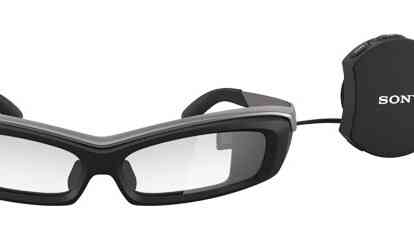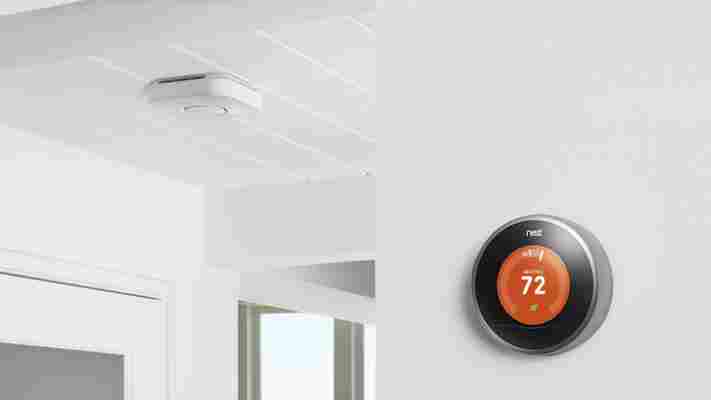If you’re worried about drones flying over your home, there’s a new option besides scanning the sky and picking them off with a BB gun.

NoFlyZone lets you establish a geofenced perimeter over your property and a number of drone hardware and software firms have already said they’ll comply.
So far, the organization has got EHANG , Horizon Hobby , DroneDeploy , YUNEEC , HEXO+ , PixiePath and RCFlyMaps to sign up to its efforts.
However, that list of participating companies is notably missing DJI and 3D Robotics , the two biggest names in consumer drones. NoFlyZone told TechCrunch that it is in touch with both firms and hopes to get them on board.
DJI has previously implemented flying restrictions for its models but had to roll back the update earlier this week.
NoFlyZone allows you to register one property per email address. It says if you want to cover more buildings, you’ll need to show proof that you actually live there by providing it with proof of residency. That said, it’s easy enough to create a new email address.
The group says it’s also working on a method to allow people to offer selective unblocking so you can fly your own drone over your house but make sure others don’t stray into your airspace.
➤ NoFlyZone (via TechCrunch )
Read next : Watch This Millennium Falcon Drone Then Build Your Own
Sony’s $840 SmartEyeglass AR specs now up for sale in 10 countries
Sony has today announced that its deeply unfashionable SmartEyeglass Developer Edition specs are available to buy in 10 countries, including the US and UK.

Priced at €840 (£620), they’re probably not the sort of impulse purchase consumers will be making just yet. However, as Google’s Glass experiment showed , once the core technology is in place, the look of the glasses can change – and it’ll need to for these to be widely adopted.
https://www.youtubeom/watch?v=Bx7O_h09HKA
If you’re not put off by the looks, consumers in the US, UK, Japan and Germany can order a pair now, but sales are only open to business customers in Belgium, France, Italy, the Netherlands, Spain and Sweden. The glasses were already available to pre-order in Germany and the UK .
➤ SmartEyeglass now available for sale [via VentureBeat ]
Nest in Europe: the secrets of the smart thermostat’s rise and rise
Nest arrived in the UK in April 2014 and hit other parts of Europe in September 2014 with its Nest Learning Thermostat and Nest Protect smoke alarm. We caught up with Lionel Paillet, Nest’s rigorously media-trained General Manager for Europe, whose answers were as smooth as Teflon, at the Web Summit in Dublin to discover the secrets of the company’s march across Europe.

First up, Paillet filled us in on Nest’s latest energy partnership with Electric Ireland, which goes live today. The deal bundles a free Nest Learning Thermostat, stand and installation – worth €374 – in with a two-year energy contract for new customers. Existing customers can get the same package for €99. Paillet says: “In our analysis, the Nest Learning Thermostat will save between 7 percent and 27 percent on a heating bill. The average bill in Ireland is about €1,000 and it’s starting to get cold so it’s good timing.”
Nest has found a very different environment in the UK and Europe compared to the US. In the UK, 60% of households don’t even have a thermostat. Paillet says: “There are a lot of programmers and not thermostats. When we went into Ireland we saw a lot of systems where you have a winter and summer button for water as well as heating. It’s not like it’s archaic, it’s just the way it’s been done.”
The UK and the Netherlands are home to Nest early adopters while Paillet admits his own home country of France is a little slower on the uptake. Nest has trained over 1,000 installers in the UK since it launched the Nest Learning Thermostat there in April.
Paillet predicts that the Nest Protect will grab serious attention from those slow-moving French folk next year. He says: “France is the last country in Europe to make smoke alarms mandatory. By March 8 2015, the law will say that you need a smoke alarm. French consumers will then experience the same thing that UK and Irish customers have experienced for years – the irritating chirp at night, the beep that you have no clue about what it means. They’ll experience all the things we have already been through with alkaline-powered smoke alarms.”
Steam gets in your eyes
Data from Nest Protect devices across the UK encouraged the company to push a software update to make a distinction between steam and smoke. It also revealed that 0.2% of British homes were exposed to a high level of carbon monoxide. Paillet says: “We added details of how much carbon monoxide you’ve been exposed to into the app so you can show it to the doctor. The treatment will vary depending on how much exposure there’s been. It gives you that information in realtime rather than when fireman come to your home.”
Nest initially thought it would face a lot of challenges in Europe due to the number of very old heating systems. That didn’t turn out to be the case. The big difference is in the savings those old houses see. Paillet says: “Badly insulated homes end up with a massive saving. In France, we’ve seen savings of between 5 and 31 percent. We took a house in Lille, a fairly isolated, old construction from the late-1800s and saved between 5 and 25 percent.”
Despite the spread of the Nest Learning Thermostat and Nest Protect across Europe, Paillet won’t be pushed on when the traditional thermostat and smoke alarm will be killed off. He says: “The first smoke alarm was released in 1940 and since then there’s been practically no innovation. If the consumer really wants the product and it makes sense, they will get it.”
But there are hints of where Nest will go next in our homes in the areas Paillet wishes were smart in his own house. He says: “I think lighting isn’t super-smart yet. There’s lots of ideas but they’re very complicated or expensive. I think security is another. The camera market is still nascent. We acquired DropCam so we’re working on it!” Last month’s acquisition of home automation firm Revolv will help with that too.
